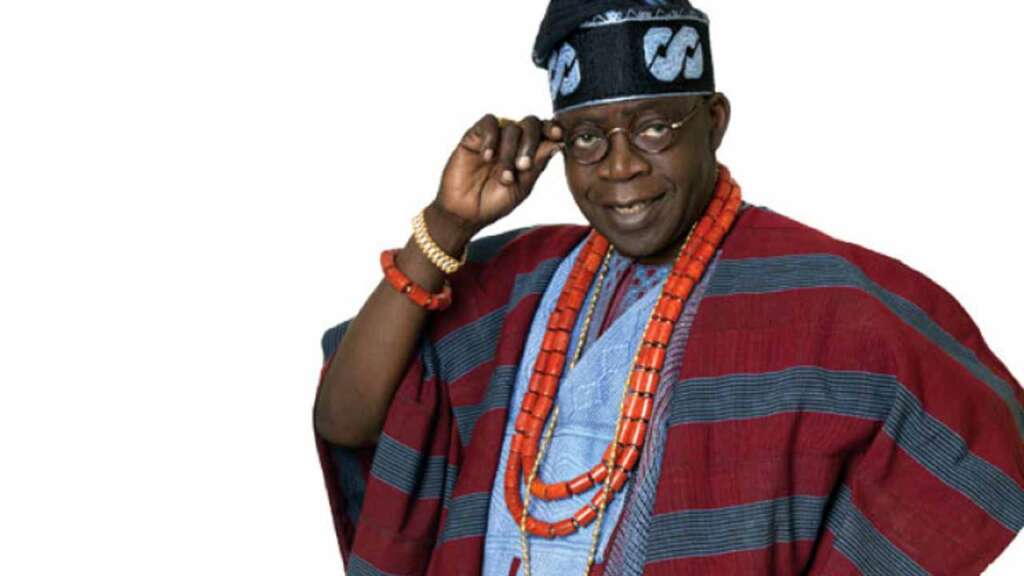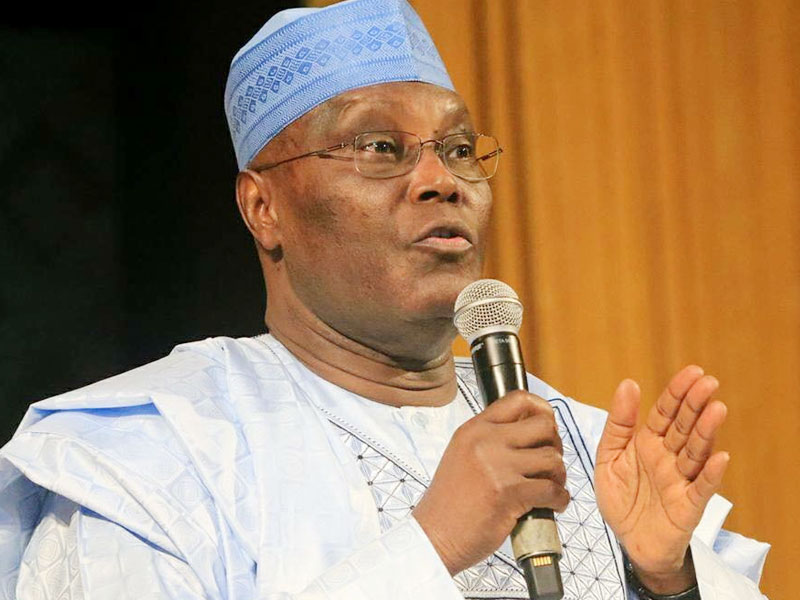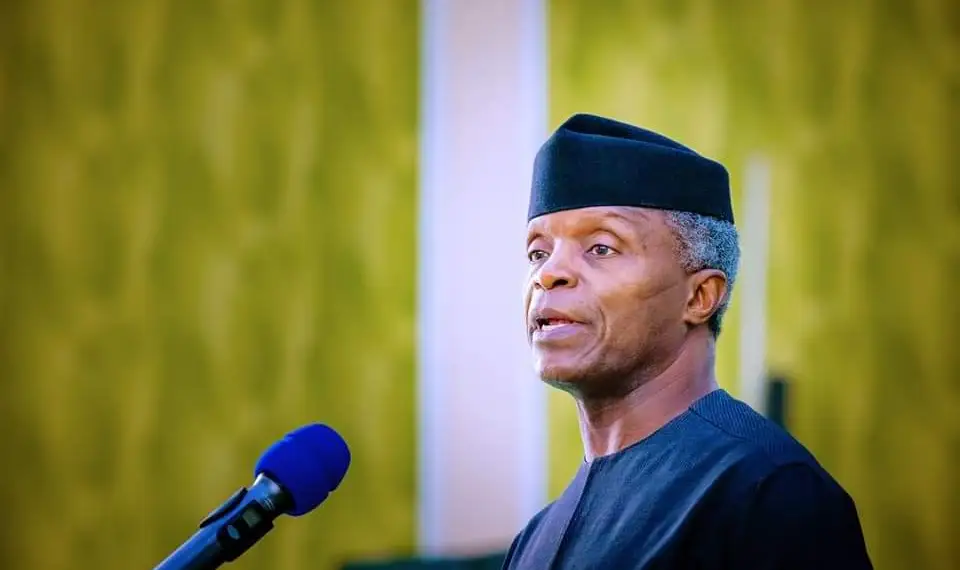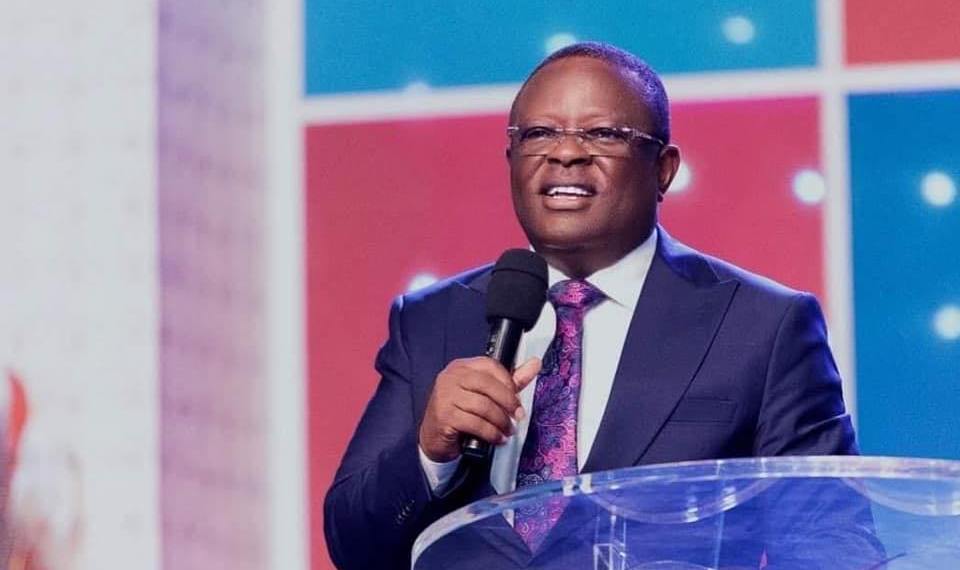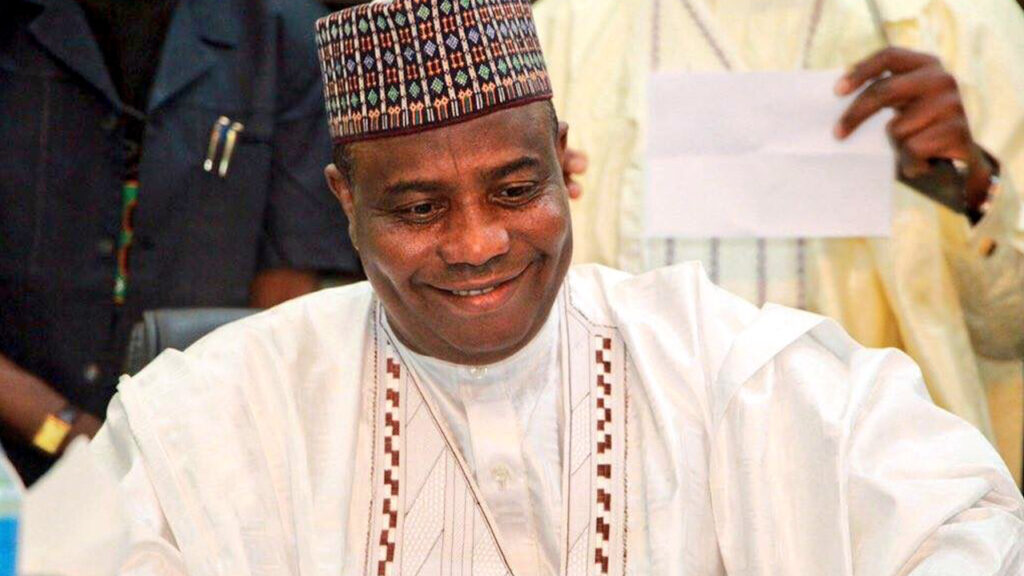Top Lists
Meet The Top 10 Aspirants in the 2023 Presidential Election
Check out the list of the Top 10 aspirants in the 2023 Presidential Election and a highlight of some of their major achievements overtime
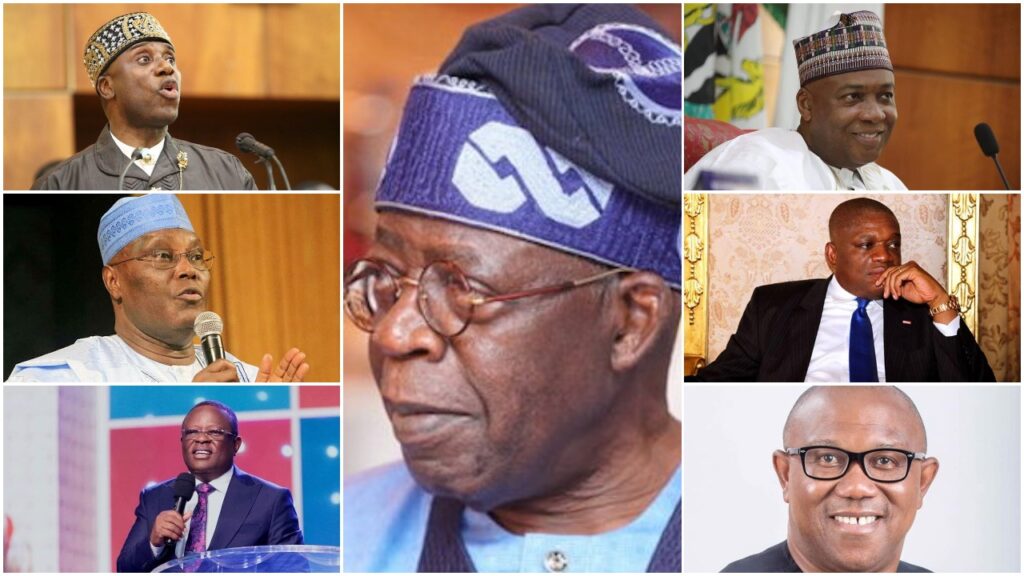
As of the time of this report, there are 277 days until the 2023 presidential election. The election is believed to be the determinant of the country’s next trajectory. Several political aspirants from different parts of the country have taken to several platforms to declare their intentions in running for the presidential position in the incoming election. However, amongst the numerous speculation, declarations and campaigns, we’ve compiled a list of the top 10 aspirants for the 2023 presidential election.
Before revealing the list, it is imperative to note that they have been a motion among the country’s political stakeholders, that the 2023 presidential ticket in all the political parties should be zoned to the southern region of the country, particularly the South East, as the region has not produced any president since the transition into democracy in 1999.
However, Some stakeholders in the country’s political scene argue that the shift in the presidency to the southern part of the country is unconstitutional. A vast majority of Nigerians, also believe that such an arrangement is no guarantor of good governance and national prosperity. People who support the motion noted that the power shift was for the sake of equity, fairness and justice.
Despite the foreseeable regional power shift, several aspirants irrespective of their geopolitical zone have begun their campaigns for the 2023 presidential election. The electoral declaration began with the top APC Chieftain, Bola Ahmed Tinubu who revealed his intentions to the press shortly after meeting with President Muhammdu Buhari in a closed-door meeting.
Ebonyi State’s Governor Dave Umahi follows in Tinubu’s steps, also declaring his intention, shortly after meeting the president. The Chief Whip of the Senate, Senator Orji Uzor Kalu notes that he would run if the APC ticket is zoned to the Southeast shortly after Kogi State Governor Yahaya Bello also declared his intention to contest on the party’s platform.
On the other hand, a few aspirants have indicated their interest in the presidential ticket of the Peoples’ Democratic Party (PDP). They include former presidential aide, Dr Doyin Okupe; the former Secretary to Government of the Federation (SGF), Anyim Pius Anyim; the immediate past president of the Pharmaceutical Society of Nigeria (PSN), Sam Ohuabunwa; and publisher of Ovation magazine, Dele Momodu.
Other interested aspirants on the PDP platform are former Vice President Atiku Abubakar, former Senate President Bukola Saraki, Sokoto State Governor Aminu Tambuwal, Bauchi State Governor Bala Mohammed and former Kano State Governor Rabiu Kwankwaso.
Aside from aspirants within the two major parties (PDP & APC), Chukwuka Monye, a 43-year old Oxford-trained innovation strategist; Mrs Khadija Okunnu-Lamidi, a 38-year-old media entrepreneur and Mrs Nonye Josephine Ezeanyaeche, a 102-year-old advocate, also declared their intentions to rule the country come 2023. Amidst the several declaration and interests here are the top 10 aspirants for the 2023 presidential election.
Top 10 aspirants in the 2023 Presidential Election
| Rank | Name | Party | State | Geo-Political Zone |
|---|---|---|---|---|
| 1 | Asiwaju Bola Tinubu | All Progressive Congress | Lagos State | South West |
| 2 | Atiku Abubakar | People’s Democratic Party | Adamawa State | North East |
| 3 | Bukola Saraki | People’s Democratic Party | Kwara State | North Central |
| 4 | Orji Uzor Kalu | All Progressive Congress | Abia State | South East |
| 5 | Rotimi Amaechi | All Progressive Congress | Rivers State | South-South |
| 6 | Peter Obi | People’s Democratic Party | Anambra State | South East |
| 7 | Yemi Osinbajo | All Progressive Congress | Lagos State | South West |
| 8 | David Umahi | All Progressive Congress | Ebonyi State | South East |
| 9. | Aminu Tambuwal | People’s Democratic Party | Sokoto State | North West |
| 10. | Nyesom Wike | People’s Democratic Party | Rivers State | South South |
1. Asiwaju Bola Tinubu
Asiwaju Bola Tinubu is one of the top chieftains in the All Progressives Congress, he was the executive governor of Lagos State from 1999 to 2007. He began his political career in 1992 when he joined the Social Democratic Party where he was a member of the Peoples Front faction led by Shehu Musa Yar’Adua. He was elected to the Senate, representing the Lagos West constituency in the short-lived Nigerian Third Republic.
Tinubu was one of the founding members of the pro-democracy National Democratic Coalition, a group that mobilized support for the restoration of democracy and recognition of Moshood Abiola as the winner of the 12 June 1993 presidential election after it was annulled by the Babaginda regime.
During his tenure as the governor of Lagos State, Tinubu reportedly designed a master plan concerning the infrastructural and economical development of the state. It is generally believed that the plan is responsible for the development of the state.
He instituted a reform plan that greatly improved the welfare of judicial officers and magistrates in the state, revamped the civil and criminal procedure rule as well as the creation of the Citizens Mediation Centre; a well-staffed and independent Office of the Public Defender, offering legal services for the poor.
He also created 37 Local Council Development Areas, the Bus Rapid Transit System (BRT) and the Lagos State Traffic Management Authority.
Asiwaju is topping the list of the 2023 Presidential aspirants, as he is often regarded as a kingmaker in the APC by virtue of the role he played in the emergence of President Buhari in 2015 and his political influence in the Southwest region.
2. Atiku Abubakar
Atiku Abubakar is a PDP chieftain who served as the Vice President of Nigeria from 1999 to 2007 during the presidency of Olusegun Obasanjo. Prior to his inauguration as the Vice President of the Federation in 1999, He ran as Governor of Adamawa State in 1990 and 1997.
He ventured into politics in the early 1980s, when he worked behind the scenes on the governorship campaign of Bamanga Tukur, who at that time was managing director of the Nigeria Ports Authority. In 1989, he was elected the National Vice-Chairman of the Peoples Front of Nigeria in the build-up to the Third Nigerian Republic.
Atiku who contested in the 1990 gubernatorial elections of Adamawa state was disqualified by the government for certain reasons after winning the SDP Primaries. He contested again and won the 1998 gubernatorial election, but he however accepted to be the running mate to General Olusegun Obasanjo, the PDP presidential candidate in the 1999 presidential election before he could be sworn in as the governor of the state.
As the vice president of the federation, Atiku was the Chairman of the National Economic Council and head of the National Council on Privatization, overseeing the sale of hundreds of loss-making and poorly managed public enterprises alongside Nasir El Rufai. He was also reported to be involved in a bitter public battle with his boss, President Olusegun Obasanjo, who bid to amend certain provisions of the constitution so as to take another shot at the presidency.
Although Atiku is yet to formally declare his intentions to participate in the incoming 2023 election he is however considered one of the top 2023 presidential Aspirants due to his political portfolio and grit as he has unsuccessfully contested five times for the presidential position in 1993, 2007, 2011, 2015 and 2019
3. Bukola Saraki
Former Senate President, Abubakar Bukola SarakiBukola Saraki is a PDP chieftain, the 13th President of the Senate of Nigeria and also the former Governor of Kwara State, where he ruled from 2003 to 2011. He was elected to the Senate in 2011, under the Peoples Democratic Party (PDP), representing the Kwara Central Senatorial District, and then re-elected in the 2015 general elections under the party of the All Progressives Congress (APC).
Saraki ventured into Nigeria politics by running for the governor of Kwara State on the platform of the People’s Democratic Party (PDP) he defeated the incumbent Governor Muhammed Lawal and was sworn into office in May 2003. He was also re-elected in 2007.
As governor of Kwara, Saraki reportedly led reforms in agriculture, infrastructure, health, education, power generation and environmental policy. He was also the first governor to complete the Nigeria Independent Power Project.
As a senator, he pushed a motion in the Senate to end the fuel subsidy regime in Nigeria. He also sponsored other motions which include the National Oil Spill Detection and Response Agency Amendment Bill 2012, the Gas Flaring Prohibition Bill 2012 and the Climate Change Commission Bill 2013.
In 2013, He established GLOBE Nigeria as an affiliate of the Global Legislators Organisation for a Balanced Environment (GLOBE International), establishing a platform for legislators to advance environmental and sustainable development laws in Nigeria. During his presidency in the Senate, he passed 201 bills and cleared 138 public petitions.
Saraki Joins the list of 2023 presidential aspirants after declaring his intentions through a Facebook post in January. Recall that he declared his presidential campaign for the PDP presidential ticket in the 2019 election but lost the primaries to Atiku Abubakar who then lost to President Buhari.
4. Orji Uzor Kalu
Orji Uzor Kalu is the serving chief whip of the Senate, prior to his election into the Senate he served as the Governor of Abia State, from 29 May 1999 to 29 May 2007. He has also served as the chairman of the Borno Water Board and the chairman of the Cooperative and Commerce Bank Limited.
Being a successful entrepreneur and businessman Kalu was responsible for financing the People’s Democratic Party (PDP) in its foundation Stage. According to Premium Times, he consistently gave huge sums of money to the party at inception, specifically N100 million for its registration in 1999 and another N100 million to former President Olusegun Obasanjo as support for his presidential campaign in the same year.
As Governor of Abia state, Senator Kalu designed and adopted a strategic approach to tackling poverty, job creation, and huge investment in key infrastructures, affordable and quality health care, and pro-poor policy, In the National Assembly, he promoted a series of pro-poor legislation aimed at improving the well-being of citizens and the country at large.
Prior to his recent declaration to run for the 2023 presidency, Uzor Kalu had contested the April 2007 general election under the Progressive Peoples Alliance (PPA) losing to PDP’s Umaru Yaradua.
5. Rotimi Amaechi
The Minister of Transportation, Rotimi AmaechiRotimi Amaechi is an APC chieftain who is currently serving as the Minister of Transportation. He previously served as the Governor of Rivers State from 2007 to 2015 and Speaker of the Rivers State House of Assembly from 1999 to 2007.
Amaechi began his political career in the third republic while he was serving as a Secretary of the National Republican Convention in Ikwerre Local Government Area of Rivers State. Between 1992 and 1994, he was Special Assistant to the Deputy Governor of Rivers State, Peter Odili.
In 1999, he contested and won a seat to become a member of the Rivers State House of Assembly. He was subsequently elected as the Speaker of the House of Assembly. In May 2003, he was re-elected as the Speaker.
In 2007, Amaechi replaced Peter Odili as the executive governor of rivers state, under the People’s Democratic Party (PDP) He was re-elected for a second term on 26 April 2011. While he was the governor, his administration invested in infrastructure development, and the construction of roads and bridges, sticking to the vision of connecting all parts of the state by road.
The governor was also committed to urban renewal and modernization of transportation services. Amaechi built a monorail to provide mass transportation within the city of Port Harcourt, and Some power plant projects (Afam, Trans Amadi, Onne) to improve the power supply in the State.
Rotimi joins the league of 2023 presidential aspirants in April relying on his political influence in the Southeast and the party to run on the APC platform.
6. Peter Obi
Peter Obi is a Nigerian politician and a vice-presidential candidate in the 2019 Nigerian general election, He was the former governor of Anambra State serving from March 2006 to 2014.
He began his political career in 2003 contesting the Anambra Governorship election against Chris Ngige of the People’s Democratic Party, who was declared the winner by the Independent National Electoral Commission (INEC).
After nearly three years of litigation, Ngige’s victory was overturned by the Court of Appeal on 15 March 2006. Obi took office on 17 March 2006. After his inauguration as the governor of Anambra State, Peter Obi faced several disruptions in his administration
Despite the disruptions, Peter Obi was able to set some milestone achievements in his tenure, He was recognised as the best governor by the Millennium Development Goals Office (OSSAP-MDGs) and the UNDP in the implementation of their programmes in Nigeria.
Under the same administration, the Nigerian Debt Management Office (DMO) rated Anambra as the least indebted state in Nigeria. In spite of visible and measurable achievements recorded in various sectors, the State under him did not borrow or raise bonds for her various projects.
Peter Obi who initially declared his presidency on the condition that it must be zoned to the South-east, is considered one of the top 2023 presidential aspirants, due to his past records and achievements and political influence in the south-east and among the youths in the country.
7. Yemi Osinbajo
Yemi Osinbajo is the vice president of the Federation, A member of the All Progressives Congress. He was elected alongside President Muhammadu Buhari in 205. Prior to this, he previously served as Attorney General of Lagos State from 1999 to 2007 and holds the title of Senior Advocate of Nigeria. In April 2022, he announced his intention to run for the APC nomination for President of Nigeria in the 2023 presidential election.
Osinbajo began his career as a law lecturer at the University of Lagos, Nigeria. He was however appointed an Adviser (legal advice and litigation) to the Attorney-General and Minister of Justice, Bola Ajibola. In 1997, he was made professor of law and head of the Department of Public Law, University of Lagos.
Prior to his appointment as the Attorney general of Lagos State, Osinbajo was a Cabinet Member of the Lagos State Ministry of Justice. He is also a member of the Justice Division of the United Nations Operations in Somalia and the United Nations Secretary General’s Committee of Experts on Conduct and Discipline of UN, Peacekeeping Personnel around the globe.
As a core member of the All Progressive Congress, he was among the individuals who designed and produce the party manifesto, after it was established in 2013. As the vice president of the federation, He oversees the economic planning team and report as well as make recommendations to the president who takes the final decision.
8. David Umahi
David Umahi popularly known as Dave Umahi is the current serving Governor of Ebonyi State. He was one of the three PDP governors that defected from the opposition party to the ruling party between November 2020 and June 2021.
He ventured into politics in 2007, as the acting chairman of the Ebonyi State chapter of the People’s Democratic Party. From 2009 to 2011, he served as state chairman of the party. In 2011, Umahi was appointed as the deputy governor of Ebonyi State on a ticket with the-then Governor Martin Elechi.
He was elected as the Governor of the state on the 12th of April 2015, in an election that has been challenged by the Labour Party, All Progressives Congress and All Progressives Grand Alliance on the basis of “widespread irregularities, killings, and wanton destruction of property”
Umahi will round off his second term in office in 2023, after his re-election on the 16th of March, 2019. He is considered one of the top 2023 presidential aspirants after noting that he is undeterred by Tinubu’s aspiration. He also promised to replicate his feats as a governor at the national level if he eventually gets to fly the party ticket and win the presidential election, noting that he intends to bring a business-like spirit into governance.
9. Aminu Tambuwal
Aminu Tambuwal is another 2023 presidential aspirant presently serving as the governor of Sokoto State. He was elected during the 2015 general elections and re-elected in the 2019 general elections. Prior to the governorship, he served as the 10th Speaker of the House of Representatives of Nigeria, also representing the Tambuwal/Kebbe Federal Constituency of Sokoto State as an honourable
Tambuwal began his political career as a Personal Assistant on Legislative Affairs to Senator Abdullahi Wali, a senator in the 1999 administration. In 2003, he was elected into the House of Representatives, representing the Kebbe/Tambuwal Federal Constituency, on the platform of the All Nigeria Peoples Party (ANPP).
As a member of the house of Representatives, Tambuwal held several offices, he was the Minority Leader of the House until he defected to the PDP, the Deputy Chief Whip and a member of several committees including the House Committees on Rules & Business, Communications, Judiciary, Inter-Parliamentary and Water Resources. He was also a member of the House Ad hoc Committee on Constitution Review.
He led the Nigerian delegation to the African, Caribbean, Pacific & European Union Parliamentary Assembly (ACP-EU) and served as Vice-Chairman, Economic Committee ACP-EU, held in Prague, Czech Republic in April 2009. Tambuwal declared his intention to contest for President in 2023 under the Peoples Democratic Party (PDP), noting that his decision was based on calls by the state chapter of the PDP.
10. Nyesom Wike
Controversial Rivers State Governor Joins the list of 2023 presidential aspirants, after declaring his intention to contest the presidency in the 2023 general election in March. The PDP Chieftain had served the state in various capacities prior to his inauguration as the Governor.
He began his political career as the Executive Chairman of Obio Akpor Local Government Area in Rivers in 1999, a position he held until 2007, after being re-elected in 2003 In 2007, he was appointed as the chief of staff to the governor of Rivers State, Rotimi Amaechi.
In July 2011, he was appointed as the Minister of State for Education by President Goodluck Jonathan and was promoted to Federal Minister of Education in September 2013. He stepped down as Federal Minister to contest the 2015 gubernatorial elections in Rivers State.
As the governor of Rivers State, wike carried out some educational reforms in the State, declaring public primary and secondary education free in all parts of the State. He also announced the free registration for participating locals of the state in the annual JAMB examination. During his second term as a governor, he kicked off the construction of three major flyovers simultaneously in Port Harcourt

